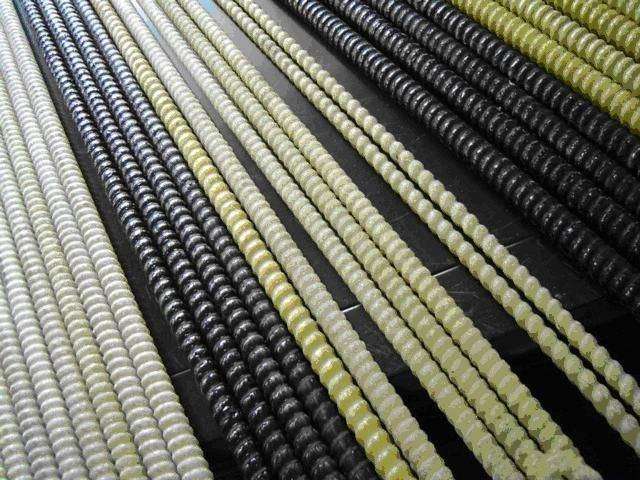Is Fiberglass Rebar Cheaper Than Steel? A Cost-Effective Solution for Construction
When it comes to construction materials, choosing between fiberglass rebar and traditional steel rebar can significantly impact your project's budget and longevity. A common question in the industry is: Is fiberglass rebar cheaper than steel? While the initial cost is often a primary concern, other factors such as durability, maintenance, and long-term performance also play crucial roles. This article explores the cost comparison between fiberglass rebar and steel, considering both the upfront expenses and the overall lifecycle costs.

Understanding Fiberglass Rebar and Steel Rebar
Fiberglass Rebar is a composite material made from a combination of fiberglass and resin. It's known for its high tensile strength, corrosion resistance, and non-conductive properties. Fiberglass rebar is commonly used in environments where traditional steel would corrode, such as marine structures, bridges, and chemical plants.
Steel Rebar, on the other hand, is a well-established material in the construction industry, primarily composed of steel alloy. It provides excellent tensile strength and has been the go-to reinforcement material for concrete for decades. Steel rebar is commonly used in standard construction projects, including buildings, roads, and bridges.
Cost Comparison: Fiberglass Rebar vs. Steel Rebar
When comparing the costs of fiberglass rebar and steel, several factors come into play:
-
Initial Material Costs: Fiberglass rebar typically has a higher upfront cost than steel. However, prices can vary based on the project's scale, market demand, and geographical location.
-
Installation Costs: Due to its lightweight nature, fiberglass rebar is easier and faster to install than steel, potentially reducing labor costs.
-
Maintenance Costs Over Time: Fiberglass rebar does not corrode, meaning it requires little to no maintenance compared to steel, which can incur significant maintenance expenses due to rust and corrosion over time.
-
Lifecycle Costs and Overall Value: Although fiberglass rebar may have a higher initial cost, its longer lifespan and minimal maintenance requirements often result in lower overall costs over the lifecycle of a project.
Advantages of Fiberglass Rebar Over Steel
- Corrosion Resistance: Fiberglass rebar does not rust, making it ideal for use in environments exposed to water, salt, or chemicals.
- Lightweight Nature and Ease of Handling: Fiberglass rebar is about one-fourth the weight of steel, making it easier to handle, transport, and install.
- Lower Transportation Costs: Due to its lighter weight, shipping and handling costs are significantly lower than those for steel.
- Extended Lifespan and Durability: Fiberglass rebar is resistant to weathering, UV radiation, and chemical exposure, which can result in a longer lifespan than steel.
Advantages of Steel Rebar Over Fiberglass
- High Tensile Strength: Steel rebar is known for its exceptional tensile strength, making it a reliable choice for projects that require strong reinforcement.
- Familiarity and Established Use in Construction: Steel rebar is a standard material in the construction industry, with proven performance and established usage protocols.
- Cost-Effectiveness for Short-Term Projects: For projects with a short expected lifespan or in non-corrosive environments, steel may be more cost-effective due to its lower initial cost.
Case Studies: Real-World Examples of Cost Savings with Fiberglass Rebar
Several projects have demonstrated the cost benefits of using fiberglass rebar. For example:
- In coastal construction projects, where saltwater exposure is a concern, fiberglass rebar has saved on maintenance and replacement costs.
- In bridge construction, fiberglass rebar has extended the lifespan of structures, reducing the need for frequent repairs and replacements.
Conclusion
When considering whether fiberglass rebar is cheaper than steel, it's essential to look beyond the initial cost. While fiberglass rebar may have a higher upfront price, its resistance to corrosion, lower maintenance requirements, and longer lifespan can make it a more cost-effective choice over time. For construction projects in corrosive environments or those requiring long-term durability, fiberglass rebar may indeed be the cheaper option in the long run.

